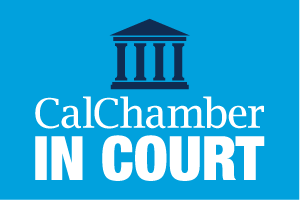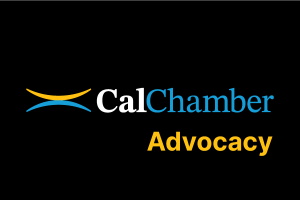
Acrylamide Lawsuit
On behalf of its members, the California Chamber of Commerce filed a lawsuit on October 7, 2019 to stop the multitude of Proposition 65 warnings for the presence of acrylamide in food and beverages. This case is about clarifying for both businesses and consumers that food does not require Proposition 65 warnings for acrylamide. This will reduce unnecessary fear for consumers and litigation threats for businesses. See the story links below for more information.
U.S. District Court Grants CalChamber Request for Permanent Injunction in Prop 65 Case
(5/6/2025)
Appeals Court Sides with CalChamber in Prop. 65 Ruling on Acrylamide in Food (3/25/2022)
Ninth Circuit Court Ruling (3/17/2022)
CalChamber Pursues Dual Paths to Provide Relief on Prop. 65 Acrylamide Warnings (11/6/2020)
CalChamber Amended Complaint (3/16/2020)
CalChamber Files Lawsuit to End Prop.65 Warnings for Acrylamide (10/8/2019)
CalChamber’s original complaint can be found here.
Regulations
Coalition Letter on Proposed Amendments to Proposition 65 Short Form Warnings (3/26/2021)
Exposures to Listed Chemicals in Coffee Posing No Significant Risk
Summary: New Proposition 65 Warning Regulations
(August 2, 2018)
Proposition 65 Warning Regulations Synopsis
(Adopted 8/30/2016)
BPA Emergency Warning Regulation
(Adopted 5/11/2016; In Effect Until 12/31/2017)
Proposition 65: Pre-Regulatory Draft Regulations
Comments on Warning Regulation Discussion Draft (10/10/2014)
Coalition Letter to Office of Environmental Health Hazard Assessment (OEHHA) (6/12/2014)
Consumer Products Draft Regulations (Green Chemistry)
Letter to Department of Toxic Substances Control (2/28/2013)
Major Victories
Safeguarded businesses’ ability to innovate in 2018 by:
- Stopping a bill requiring manufacturers of electronics and appliances sold in California to provide any repair person with software, parts and tools to repair the products (AB 2110).
- Blocked efforts to place ridiculous restrictions on use of bots (AB 1950).
Prevented passage of proposals in 2017 threatening energy reliability (AB 127); banning expanded polystyrene foam food service containers (SB 705); and increasing permitting fees and delays (SB 774).
Stopped bills in 2016 leading to increased environmental litigation (AB 2748) and frivolous litigation about alleged gender-based pricing of goods (SB 899).
Led coalition in 2016 that stopped a bill that would have stifled innovation and imposed unnecessary burdens on businesses by requiring manufacturers of specific consumer products to disclose ingredients on product labels and the internet without protecting confidential business information (AB 708).
Halted expensive unnecessary regulatory burdens, such as an expanded waste bureaucracy in 2010 (AB 479, AB 737) and a 2012 vote rejecting a ban on the use of polystyrene foam food containers (SB 568); and in 2013 an expansion of reasons to sue under the California Environmental Quality Act (SB 617, SB 754).
Issue Summaries
Proposition 65
Position: The CalChamber supports the underlying intent of Proposition 65, which is to ensure that consumers can make reasoned and informed choices when they purchase consumer products or enter certain establishments. Unfortunately, the intent of Proposition 65 has been undermined by ever-increasing attempts to use the law solely for profit, which has exploded into a multimillion-dollar cottage industry. For this reason, CalChamber ardently supports significant reforms to end frivolous, “shakedown” lawsuits, improve how the public is warned about dangerous chemicals, and strengthen the scientific basis for warning levels and initial listings.
Although achieving these goals legislatively has proven nearly impossible, CalChamber remains committed to initiating or supporting efforts to restore the original intent of the law. Whether proposed in the legislative or regulatory forum, or via changes through litigation, CalChamber will continue to lead the business community on this critically important issue to protect businesses from Proposition 65 abuses and to help restore Proposition 65 to its original intent of protecting California consumers.
Product Regulation (PFAS)
Position: While the responsible management of per- and polyfluoroalkyl substances (PFAS) is essential, California should pursue policies grounded in science and practicality. Instead of an indiscriminate ban, the state should focus on targeted measures that address specific risks, prioritize high-exposure applications, and encourage the development of safer alternatives. Leveraging existing federal and state programs would ensure a more efficient and scientifically sound approach to regulating PFAS without undermining economic and environmental priorities for California.

Recent News
Product Regulation Bills
- 2025-2026 Bills
- 2023-2024 Bills
- 2021-2022 Bills
- 2019-2020 Bills
- 2017-2018 Bills
- 2015-2016 Bills
- 2013-2014 Bills
Recycling Bills
- 2025-2026 Bills
- 2023-2024 Bills
- 2021-2022 Bills
- 2019-2020 Bills
- 2017-2018 Bills
- 2015-2016 Bills
- 2013-2014 Bills
Regulations
- Summary: New Proposition 65 Warning Regulations (August 2, 2018)
- Proposition 65: Warning Regulations Synopsis (Adopted 8/30/2016)
- BPA Emergency Regulation Warning (Adopted 5/11/2016; In Effect Until 12/31/2017)
Reports
Coalitions
Committees
Staff Contact
 Ashley Hoffman
Ashley Hoffman
Vice President and Deputy Chief of Staff for Advocacy



